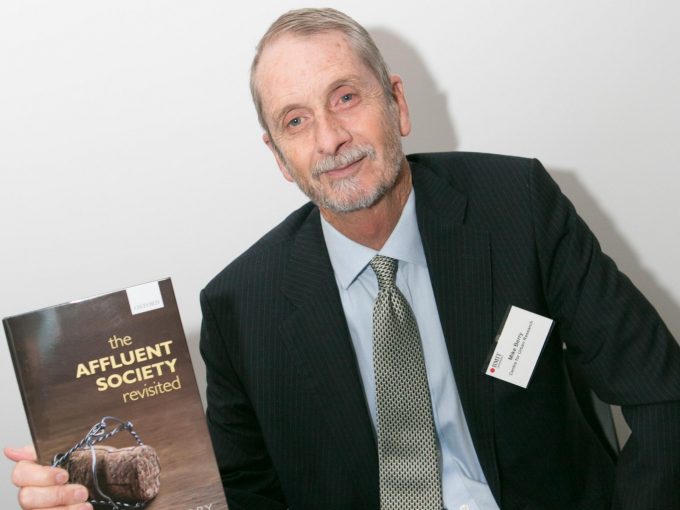On December 1, CUR members and partners gathered to reflect on the impact of the Centre over the past decade and consider the future of urban research.
The Centre for Urban Research was established in late-2012/early-2013 with the objective of connecting people and ideas for sustainable cities and regions.
The Centre was formed by bringing together researchers from the RMIT AHURI Centre, Interdisciplinary Conservation Science group, National Centre for Design, and Sustainability and Urban Planning program. The founding Director was Robin Goodman who was supported by David Hayward, Dean of GUSS, and the multi-disciplinary community of researchers and leaders that have collaborated under the CUR banner.
Since 2012 CUR has grown to become one of the largest research groupings at RMIT, with annual research income over $5m and an extensive academic and public profile. As far as can be ascertained CUR is the largest urban research grouping in the southern hemisphere and one of the largest in the world. Collective research achievements of this scale are rare in urban research and deserve recognition and celebration.

The event was opened by Centre Director Jago Dodson, who briefly spoke about the beginnings of CUR, followed Tom Bentley discussing urban research in the context of the RMIT strategy.
The first panel of the day was moderated by Andrew Butt. Founding director Robin Goodman, Kath Phelan (Infrastructure Victoria), and Centre members Joe Hurley and Ian McShane, looked back on the past 10 years of CUR, reflecting on its journey and impact within RMIT and on policy more broadly.
As A/Prof Ian McShane remarked, “one of [the Centre’s] strengths is its plurality of interests… we have social infrastructure, culture and library and museum studies, education, transport, land-use planning, urban greening, sustainability in its many forms, housing… That span of interests is very important as we move into the 21st Century and tackle some of the enoromous and wicked problems that confront us in major metropolitan areas and beyond.”
Tim Marshal briefly reflected on urban research in the context of DSC strategy, before the second panel, moderated by Lauren Rickards. Panellists, Wendy Steele, Susie Moloney (Jesuit Social Services), Michael Fotheringham (AHURI) and Hannah Badland discussed the direction of urban research that aims for equitable, sustainable future.
Considering how urban research should respond to the challenges of the next decade, Deputy Director Hannah Badland posited that for the Centre to continue making an impact, it needs to embrace indigenous knowledge, strengthen international collaboration, particular in the Asia-Pacific, taking lessons from the urbanisation pressures to build resilient cities, and consider the opportunities for big data, “There are amazing datasets out there”, Badland said, “we now have the technology to pull them together and interrogate them in new ways”.

The event celebrated the individual and collective achievements of the researchers who have been part of the Centre and our academic, government, industry and community collaborators and provided an opportunity for colleagues and community to gather together.
See the full program online and watch the discussions below.





